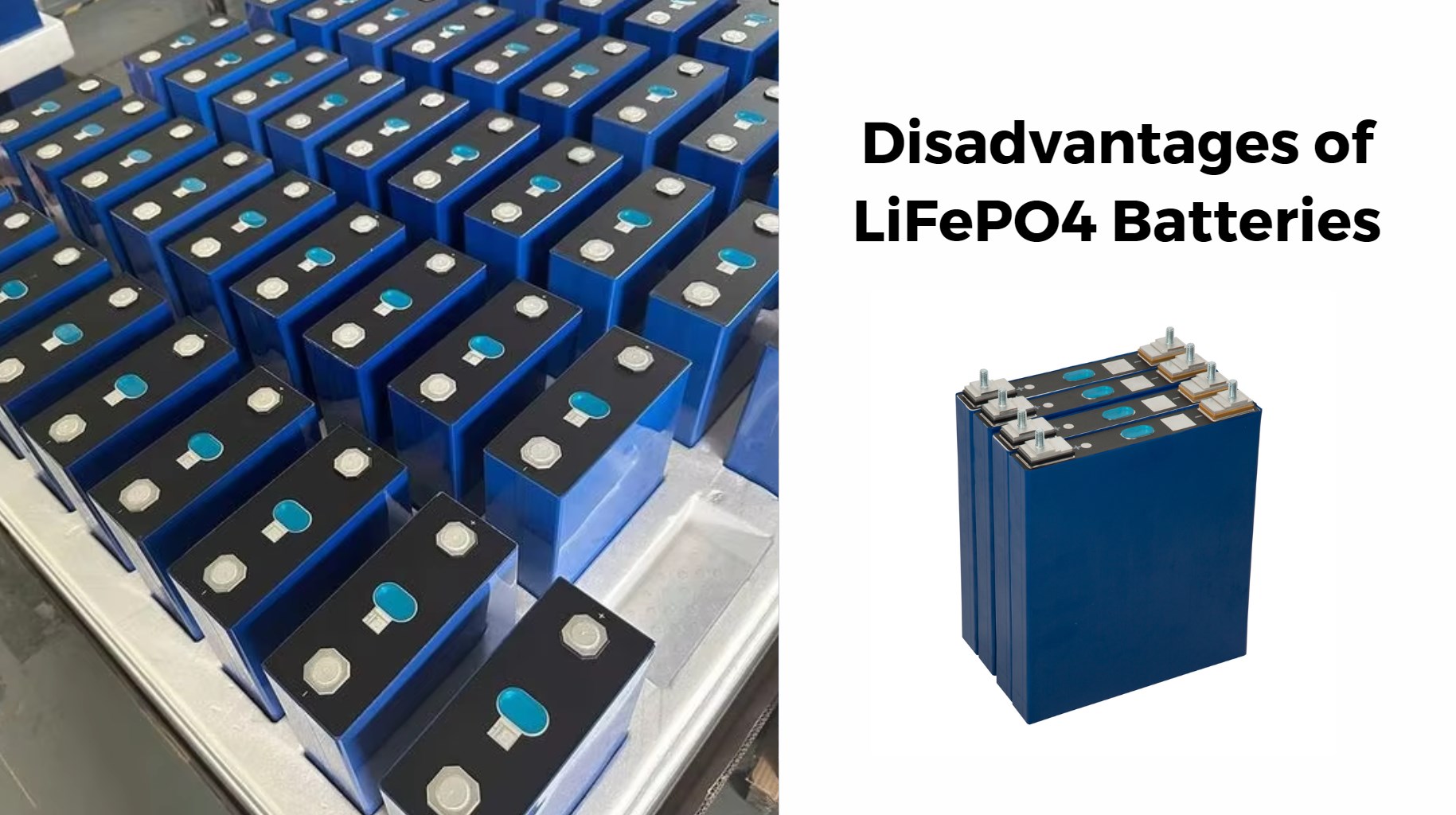Lithium Iron Phosphate (LiFePO4) batteries have gained significant traction in the energy storage market due to their numerous advantages, including higher energy density, longer lifespan, and reduced environmental impact. However, like any technology, LiFePO4 batteries come with their own set of disadvantages that may influence their suitability for certain applications. In this article, we delve into the disadvantages of LiFePO4 batteries, exploring their performance limitations and how they compare to other battery technologies.
LiFePO4 (Lithium Iron Phosphate) batteries have several disadvantages, including higher upfront costs compared to other lithium-ion and lead-acid options. They also have lower energy density, making them heavier for the same capacity. Additionally, their performance can degrade in extreme temperatures, particularly at low levels.
1. Performance Limitations at High Temperatures
One of the primary drawbacks of LiFePO4 batteries is their performance under high-temperature conditions. These batteries can experience reduced efficiency and capacity when exposed to extreme heat. High ambient temperatures can lead to increased internal resistance, which diminishes the battery’s overall performance and shortens its lifespan. This limitation is particularly relevant in environments with consistently high temperatures, such as certain industrial settings or regions with extreme heat.
Thermal Management Challenges
Effective thermal management is crucial for LiFePO4 batteries to function optimally. Without adequate cooling systems, the heat generated during operation can exacerbate performance issues and accelerate degradation. For applications where temperature control is challenging, LiFePO4 batteries may not be the ideal choice.
2. Higher Initial Cost Compared to Lead-Acid Batteries
While LiFePO4 batteries offer a range of benefits, their initial cost is typically higher than that of traditional lead-acid batteries. This higher upfront investment can be a barrier for some users, particularly in applications where budget constraints are a primary concern. Although the total cost of ownership may be lower over the battery’s lifetime due to reduced maintenance and longer lifespan, the initial expense remains a significant consideration.
Cost-Benefit Analysis
When evaluating the cost of LiFePO4 batteries, it’s essential to consider the total cost of ownership, which includes factors such as lifespan, maintenance, and efficiency. While the initial cost may be higher, the long-term benefits can outweigh the upfront investment. However, for users with limited budgets or those requiring a lower initial expenditure, lead-acid batteries might be a more economical choice.
3. Limited Performance in Extremely Low Temperatures
Another disadvantage of LiFePO4 batteries is their performance in very low temperatures. These batteries can experience a significant drop in capacity and efficiency when exposed to cold environments. In freezing temperatures, the battery’s chemical reactions slow down, which can lead to reduced power output and longer charging times.
Winter Operation Considerations
For applications in cold climates, additional measures such as thermal insulation or heating elements may be required to maintain battery performance. These additional systems can increase the overall cost and complexity of using LiFePO4 batteries in colder environments.
4. Size and Weight Constraints
While LiFePO4 batteries are generally lighter than traditional lead-acid batteries, they can still be relatively bulky, particularly for high-capacity applications. The physical dimensions of these batteries might be a limiting factor in certain applications where space is at a premium.
Design Flexibility
For applications requiring compact and lightweight power sources, the size and weight of LiFePO4 batteries can present challenges. In these scenarios, alternative battery technologies or custom-designed battery packs may be necessary to meet spatial constraints.
5. Complexity of Battery Management Systems (BMS)
LiFePO4 batteries require sophisticated Battery Management Systems (BMS) to ensure safe and efficient operation. The BMS is responsible for monitoring battery health, managing charge and discharge cycles, and protecting against overcharging or deep discharging.
Increased Complexity and Cost
The necessity for a BMS adds an extra layer of complexity and cost to LiFePO4 battery systems. While the BMS is essential for optimizing battery performance and longevity, it also increases the overall expense and maintenance requirements of the battery system.
6. Recycling and Disposal Challenges
Although LiFePO4 batteries are considered environmentally friendly compared to other lithium-ion batteries, their recycling and disposal still pose challenges. The recycling infrastructure for LiFePO4 batteries is not as developed as for other types of batteries, and proper disposal is crucial to minimize environmental impact.
Environmental Considerations
Proper recycling and disposal practices are essential to mitigate the environmental impact of LiFePO4 batteries. As the technology evolves, improvements in recycling processes and infrastructure are expected to address these challenges more effectively.
7. Lower Energy Density Compared to Other Lithium Technologies
Compared to other lithium-ion technologies, such as Lithium Cobalt Oxide (LCO) or Lithium Nickel Manganese Cobalt (NMC), LiFePO4 batteries generally have a lower energy density. This means that they store less energy per unit of weight or volume, which can be a disadvantage in applications requiring high energy storage in a compact form.
Application Suitability
For applications where space and weight constraints are critical, other lithium-ion technologies with higher energy densities might be more suitable. However, for applications where safety, longevity, and cost are prioritized, LiFePO4 batteries remain a competitive option.
Conclusion
LiFePO4 batteries offer several advantages, including safety, longevity, and environmental benefits. However, their performance limitations in high and low temperatures, higher initial cost, size and weight constraints, complexity of Battery Management Systems, recycling challenges, and lower energy density compared to other lithium technologies present notable disadvantages.
At Redway Battery, we understand the importance of selecting the right battery technology for your specific needs. While LiFePO4 batteries may not be suitable for every application, their unique advantages make them an excellent choice for many scenarios. For a personalized assessment and to explore the best battery solutions for your requirements, contact us today. Our team is committed to helping you find the perfect power solution that meets your operational needs and budget considerations.



